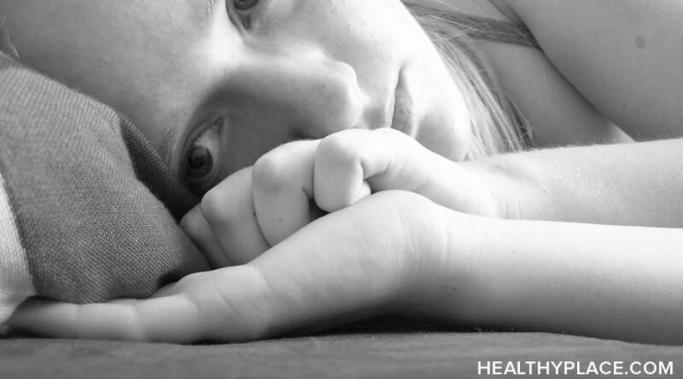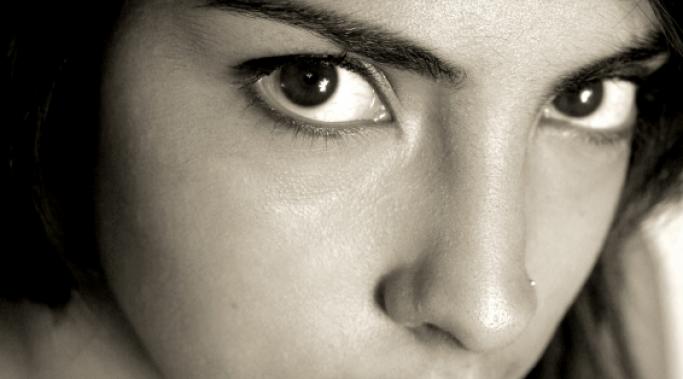Through my years of being a person with bipolar disorder I have come up with a variety of coping techniques. Many of these techniques have fancy names and are detailed in therapies like cognitive behavioral therapy (CBT). Of course, I used them long before I ever knew they had names.
And one of my current skills is thought-boxing. Or, at least, so I call it. To the best of my knowledge, this particular skill doesn’t have a name. This is a Natasha Skill. Something I developed over years of trying really hard not to let the crazy kill me.
It’s a way of controlling thoughts. It’s a way of keeping the horrendous, bipolar thoughts out of my consciousness, as much as possible. It’s a way of sidestepping all the thoughts that are, indeed, trying to kill me.
Coping
It’s devastating to get a diagnosis of bipolar disorder or another mental illness. It means many things to many people, but I know for me, it meant a lifetime condition and a lifetime of treatment. It honestly felt like a death sentence.
But a bipolar diagnosis doesn’t just affect the person with bipolar disorder. A bipolar diagnosis can affect their family and friends, especially if the person with bipolar disorder is younger. It’s completely understandable for a parent to wonder if bipolar disorder is a death sentence. It’s completely understandable for a parent to wonder if his or her child is going to be okay.
Recently I went through a nasty bipolar medication change. I stopped one antipsychotic in favour of another. Of course, this was to improve my overall treatment. And as I’ve said before, if you change nothing then nothing changes, and in this case, I had to change medications in the hopes of changing my mental wellness.
It did not go well.
What ended up happening was a gradual slide into horrific suicidality. The new med was not effective for me.
But I learned something from this experience. Before changing bipolar medications, it’s a good idea to put into place a medication change safety plan.
I am a very difficult case of bipolar to treat. Believe me. I have been on more bipolar medications than anyone I know and finding an effective cocktail is akin to walking on water. It’s possible, but it’s pretty darn rare. And recently I made a medication change from one antipsychotic to another. It went very badly in a whole host of ways. In fact, I terminated the medication trial early and went back to my previous medication.
I see my doctor this afternoon and now I have to tell him the bad news about how it went. And I feel guilty about failing another bipolar medication. I know he will be disappointed and I feel bad about it.
Recently, our blogger Natalie Jeanne Champagne wrote a post: Mental Illness: Understanding Rational and Irrational Fears and this got me thinking about the fears I, and others, have had about bipolar medication. Some of the bipolar medication fears are completely justified and rational while some really are not. Some are fears that stem from real possibilities while others are often propagated by fear-mongering groups online or our own internal catastrophizing.
Recently I was contacted by someone who was unfortunately going through a divorce. He felt that his spouse left him because he was bipolar. He asked me the question that so many people with a mental illness have asked themselves: I’m bipolar – will anyone ever love me?
Well, I can’t tell the future, but I do know a few things about love.
The first thing I thought of this morning was killing myself. Literally, as consciousness slowly overtook my brain thoughts of suicide were all that were there.
It’s a bad day.
I hear from people over and over again how they can’t reach out to others because they are too sick. Normally this is because the person is too depressed, but it could be because the person is too anxious or in some other mood state. And I know for myself that asking for help can be the scariest thing in the world, but if we ever hope to turn the tide, if we ever hope to beat back bipolar, we need to be able to reach outside ourselves for help and support.
OK, maybe it seems like I’m being a bit hard on commenters. I swear I’m not. I like people who comment and express their opinion, but sometimes their opinion spurs one of my own. This is one such comment:
I’m bipolar, and I think we ALL should have to take a Dialectal Behavior Therapy course. The DBT course helps with coping skills, year class, and helps . . . these skills work if you want them too.
Here’s someone singing the praises of dialectical behavior therapy (DBT). She would certainly not be alone as many people find DBT to be helpful. The problem I have with this comment is the last bit, “these skills work if you want them too [sic].”
So, this means that if the skills learned in DBT don’t work for someone it’s because they didn’t want them to?
I don’t think so.
I am not an angry or an aggressive person. This is not to suggest I don’t have my moments, as we all do, but overall, I have far fewer issues with anger than most people I know. There are lots of reasons for this, I’m sure many have to do with my psychology the way I view anger (I view it as pointless and particularly undesirable).
Nevertheless, it seems that people with bipolar disorder do, on the whole, have anger issues. I’m a bit surprised to hear this as anger is not a diagnostic feature of bipolar disorder, but people write in again and again and talk about either having bipolar and being very angry or being with someone who has bipolar and this partner being very angry.
But are these just anecdotal accounts or do people with bipolar disorder have aggressive and angry tendencies?
![MC910217009[1]](/sites/default/files/styles/blog_listing/public/uploads/2013/03/MC9102170091.png?itok=utWsS2Qv)
![MP900178828[1]](/sites/default/files/styles/blog_listing/public/uploads/2013/03/MP9001788281.jpg?itok=xe_PjdU_)







